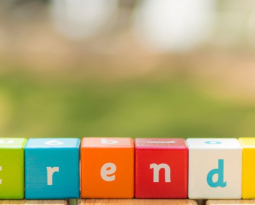When tragedies happen, what’s the right social media response for radio?
First rule of thumb – it’s important to not proceed as if it’s business as usual. Radio stations need to pivot and adapt when tragedies happen.
Social media networks are certainly aware of their pivotal role in times of tragedy. For example, Facebook’s Crisis Response is “a place on Facebook where you can find information about recent crisis, use a Safety Check to connect with friends and loved ones during a crisis, give or find help to people in the affected area, and create or donate to fundraisers to support recovery efforts,” according to the social media network.
Not only is social media an essential communications tool for your radio station, it’s also where many radio listeners in your community spend time.
Social media plays an important role in getting information out quickly – often sharing what is happening in real time. However, social media’s easy posting access and potential to reach such a vast audience (4.88 billion, or 59.9 percent of the world’s population, are social media users), can make social platforms difficult to navigate during a tragedy.
Here are five best practices to help your radio station be prepared to use social media in the event of a tragedy.
- Stop and pause posts. In the aftermath of a tragedy, don’t rush to comment. It’s also important to consider stopping planned posts to avoid potentially sharing content which could come across inappropriate in tone.
- Read the “room.” Take time to read news alerts before deciding if and how to respond to a tragedy. It’s vital to understand social cues and gauge the way that the world is reacting. Ask yourself, “Does this feel relevant to our audience right now?” Once you have a good understanding on what your community is feeling, you can make a decision about how your radio station should react.
- Use your social channels for good. Encourage your followers with messages of hope. Make plans now to create a “go-to” folder of social media assets which include graphics of uplifting quotes and Bible verses. Share developing inspiring stories in response to the tragedy at hand.
- Use your posts to help. Share links and retweet posts about raising money and seeking volunteers for aid, or about helplines or organizations that are providing services at the site of the tragedy. For example, you may share a post about the Red Cross looking for blood donors, a church raising money to help families affected by the tragedy, or a humanitarian organization looking for volunteers to help with cleanup efforts.
- Give careful consideration. Finally, and this should be a rule of thumb regarding use of social media outside of tragedies as well as during – use sound judgement. If you have to ask, “will this offend our audience”, the answer is probably yes. There’s little harm in erring on the side of caution. Also, you never want to give even a hint of the impression that the station is attempting to leverage a tragedy for social media engagement.
The best approach for radio on social media in the face of tragedy? I appreciate what Marsha Friedman, a 23-year veteran of the public relations industry wrote about Social Media Strategies in Times of Tragedy:
“Of course, social media is also about reactions and, for many, that includes offering a sincere expression of sympathy for those affected. If you want to post something and you’re unsure about what to say, take a look at what businesses and other brands are sharing and how online users are reacting. You may decide to just say nothing for a day or two, or whatever time seems reasonable given the nature of the event.
Sometimes, saying nothing at all speaks volumes.”









